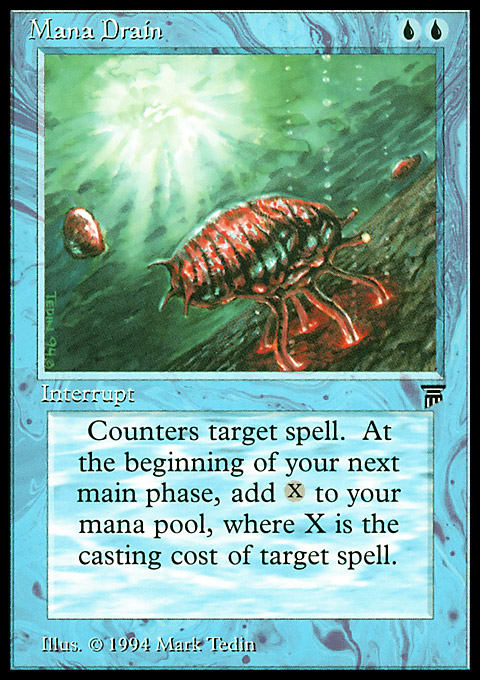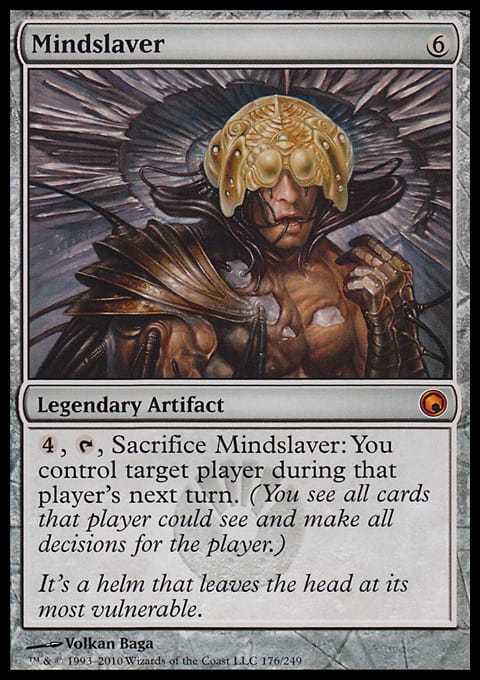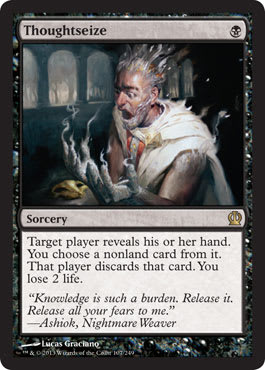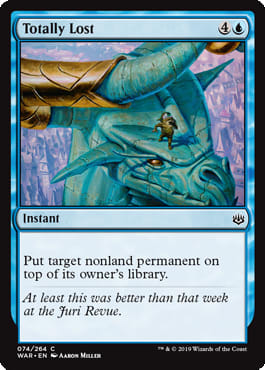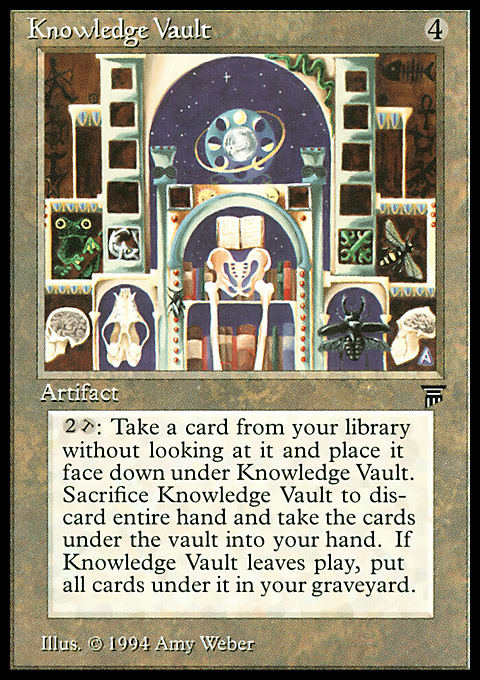This is the second in a series that goes into tremendous detail on the nature of the most common mistakes in Magic in an effort to greater understand their nature, and consequently, overcome them. They will likely also possess knowledge that will apply to your life outside of Magic.
Beyond the slowest and most plodding strategic macroarchetypes in Magic, beyond counterspells and card advantage, beyond planeswalker traction and efficient "top of the deck" velocity, there is a very powerful and familiar concept.
Control.
The desperate cling to it. The dangerous divide it.
Control. Control. Control.
Want to know what suffering is? It's when you lack the control over your environment to change it, at least in the way you're trying to do so.
The Big C.
Vitamin C. (Make sure you have enough.)
If you're playing a deck that generally wins in a style you'd describe as "control," how "out of control" can your opponent be before you've lost the game? How much of a Magic game do you have to control to win usually? Do you ever feel in control before realizing that you're not? How often do decks no one calls "control" end up acting as the more controlling force in a given Magic game? What are the traits that most accompany having control? Is that how to best identify when someone has it?
Let us ruminate about our favorite self-righteous feeling of power and how we have failed, collectively, to understand its relationship to Magic.
Who's the Slowdown?
Imagine a game state with a bunch of lands of various colors on each side. Players can cast anything in their decks. You know, one of those fun, parity everywhere, late game Magic states that keep things engaging for both players. Both players have a card or two in hand, both players have a few creatures that can't punch through. For the sake of simplicity, let's assume this isn't a heavily mined format and our hypothetical players are generally unaware of what's going on outside of this specific game.
In other words, you don't know if you're supposed to be the control player or not.
A long time ago, when everyone first internalized Mike Flores' "Who's the Beatdown?" paradigms, it was for good reason: You could use what essentially amounted to one general guideline to pilot a huge number of game decisions that you may have otherwise felt less confident about. The "aggro versus control" framework made the hard part of identifying the best lines a lot less hard.
In other words, players who were aware of the dynamic were more in control of their game destinies than players who were not. All it took to really internalize the dynamic was to see it in action a few times. Virtually every veteran player now, in an established metagame, will have a general idea of which side of the spectrum they land on in relationship to various expected decks.
Here's the thing, though: Magic has gotten a lot different since then. The cards are such now that any tournament playable deck without a highly linear strategy (like Mono-Red Aggro or whatever) must necessarily create webs of tangled triggers that muck up the formerly orderly flow of Magic games. Usually, this is to the point where if the aggro and control roles aren't immediately knowable, they seem very difficult to know at all, especially in a spot where you don't feel there's been much information to convince you one way or another.
You're never going to be able to control everything about the game. You could cheat and still not control all that much of it (more on that later). So how do you make an educated guess? How do you find out if you are the 'Beatdown' or the 'Slowdown' in this new planeswalker-laden, Mulldrifter/Eternal Witness recurring, Siege Rhino multiples, "mythic, stick it, that's the ticket" world?
First thing is to temporarily ignore most of this theory long enough to make sure you're not beating yourself. Let me repeat that: The game will change in at least a minor way (relative to your knowledge) every single turn. During all turns, yours and theirs, make sure you didn't just cast a creature that lets you Plague Wind through combat next time you get an attack (double check!). Wins become available in draw steps all the time. Make sure you're never giving up a game that was winnable via draw and deploy, followed by some suddenly favorable combat.
Also be mindful that your life total is comfortable with the creature layout and what you're thinking about altering about it. There are going to be several games in your lifetime where you'll lose trying to calculate your beatdowns or your kill spells or your sweepers when you could've just attacked a few times and not tried to emulate some grandmaster mentality to make the game go as long as humanly possible. Control play is more precarious than that now. You don't just get to Day of Judgment and then take your time. Lots of cards just ruin you and take the control dynamic right back away. The role you want to play more than "control player" is "winner." Keep your goal hierarchy in perspective.
Summon Workhorse
The next tactics for maximizing control in Magic come down to increasing as much awareness as you can of the following things (none of which contain enough brevity to be fully detailed here). Unfortunately, these are straight up optimization exercises and there's no real way to dodge the hard work of it. I haven't been in a position to feel the need to keep up with this stuff in probably a decade, but if you want to be the best, I wouldn't ignore these.
- I know it seems obvious to players who grind and get lots of feel for matchups incidentally (where my Arena mythic grinders at?), but you really need to have an internal, active knowledge of both sides of all the matchups you could reasonably have. If there are four or five decks that represent the most proven strategies in the format you're going to be playing and playing against, and you find any number of those matchups containing turns where you frequently have no idea what your opponent might do next, you're definitely giving up loads of control that other players will happily take for themselves.
- Another thing I can't believe I don't see more serious players do is work on a really "nuts and bolts" exploration of common Magic math. I'm not talking about just combat or trying to decide whether you can draw into lethal; I'm talking about understanding the implications of the percentages that come bundled with expected land counts, common mulligan patterns, what kind of shifts obviously transpire when play first changes to draw first and vice versa... Players overwhelmingly favor intuitions they have developed from practice and experienced game states to generalize their patterns. This is great for most, but it can't take you all the way.
Whether it's research or homework or practice for Poker night, being a serious player means taking advantage of things others aren't, and by and large, players at virtually all levels of experience skip these last labors in optimizing their chances of mastery. I think this is a mistake, as many of the constants of Magic math haven't moved much. Four is still a playset. People are playing with 60 cards, and they have fifteen in their sideboard. You start with seven cards in your hand. You have 20 life. A lot of the math you'd put in from fifteen years ago would still fly.
The most sufficiently prepared control player possible honestly wouldn't be making all that many choices at all.
Control What You Can Control
We're not done with control yet. Not by a long shot. Though we've looked at some finer details and thought back on some old control paradigms, there's a lot more to cover here.
If you want another, bigger lesson in Magic and control, be here next time. Rascal is going to sort out some myths that have needed untangling for a long, long time.
(~_^)
The Rascal
The "Indestructible" Danny West
















